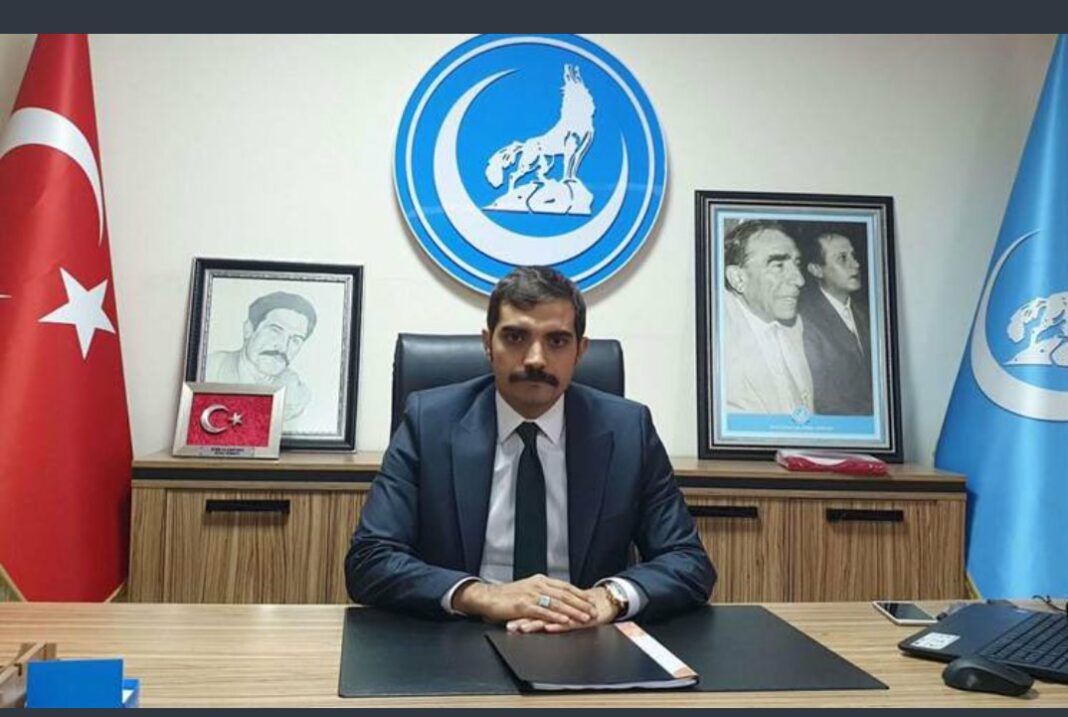The Interior Ministry has assigned two personal bodyguards to protect the widow of Sinan Ateş, an academic and former leader of the Grey Wolves (Ülkü Ocakları), the youth wing of the far-right Nationalist Movement Party (MHP), who was murdered in 2022, local media reported on Friday, citing a journalist.
The 38-year-old Ateş was fatally shot in the capital city of Ankara on December 30, 2022. His murder in broad daylight sent shockwaves across the country, sparking a debate about the power struggles within the country’s nationalists.
Ateş’s widow, Ayşe Ateş, who has not remained silent about her husband’s murder and is struggling to uncover the alleged masterminds and motives behind it, last week said during a program with journalist Fatih Altaylı on YouTube that she has been receiving death threats.
“The murder of Ayşe Ateş is being planned behind closed doors. … I have applied for protection from the Interior Ministry,” Ateş told Altaylı on May 18.
Journalist İpek Özbey on Friday announced on X that “the widow fearing for her life” was assigned two personal bodyguards.
https://twitter.com/ipekkozbey/status/1793919558656606694
The Ankara Chief Public Prosecutor’s Office recently completed an investigation into the murder of Ateş more than a year later and drafted an indictment. The indictment, which accuses 22 people of “premeditated murder,” was accepted by the Ankara 31st High Criminal Court earlier in May.
The indictment lists 22 suspects, including individuals from the ranks of the Grey Wolves and affiliated political entities. Key figures named include Eray Özyağcı, who is accused of firing the fatal shots; Emre Yüksel, a private secretary for current Grey Wolves president Ahmet Yiğit Yıldırım; and former Grey Wolves executive Tolgahan Demirbaş, among others.
Despite these accusations, Turkish journalists said the indictment notably omits any mention of the alleged masterminds or the motive behind the assassination, focusing instead on those who were directly involved in the execution of the crime. This prompted fierce criticism from Ayşe Ateş and people following the case.
Commenting on the developments, Ateş previously said on X that the authorities’ attempts to prevent justice from being served by putting “an empty piece of paper” as an indictment in front of them in order to hide the “real criminals” from the public are “futile.”
Bize operasyon çekiliyor, deniliyor. "Pensilvanya" deniliyor. Eğer bir operasyon çekiliyorsa çekenler bu ve benzer delillerle suçu sabitlenmiş olanlardır. Kurumsal araçları katillere tahsis edenlerdir. "Onun kalemini kırdık" diyerek sağa sola elçi yollayanlar, birbirine mesaj… pic.twitter.com/Fu3AfafGOF
— Ayşe Ateş (@ayseatesaa) May 9, 2024
The widow’s strong response highlights a broader accusation of government interference and a possible coverup, suggesting that the indictment was intentionally stripped of details to protect certain political figures.
Ateş’s mother, while mourning her son’s death, pointed to the higher echelons of the MHP and its leader, Devlet Bahçeli, an ally of Turkish President Recep Tayyip Erdoğan.
This case is being followed by the opposition particularly closely due to the suspects’ political affiliations and the historical importance of the Grey Wolves as an unofficial paramilitary wing of the MHP. Their ideology is mainly based on Turkish nationalism. Therefore, Kurds, Armenians and other minorities in Turkey have occasionally been their targets.
In 2020 France officially banned the Grey Wolves after a center dedicated to the memory of those who died in the mass killings of Armenians during World War I was defaced with graffiti, including the name of the Grey Wolves.
The German government has faced an intensified public campaign in favor of banning the Turkish nationalist group since then.
In 2021 the European Parliament called on the European Union and its member states to examine the possibility of adding the Grey Wolves to the EU terrorist list.
In its 2019-2020 report prepared by Turkey rapporteur Nacho Sanchez Amor, the EP voiced concerns about the group, saying it was expanding to worrying levels not only in Turkey but also in EU countries.
